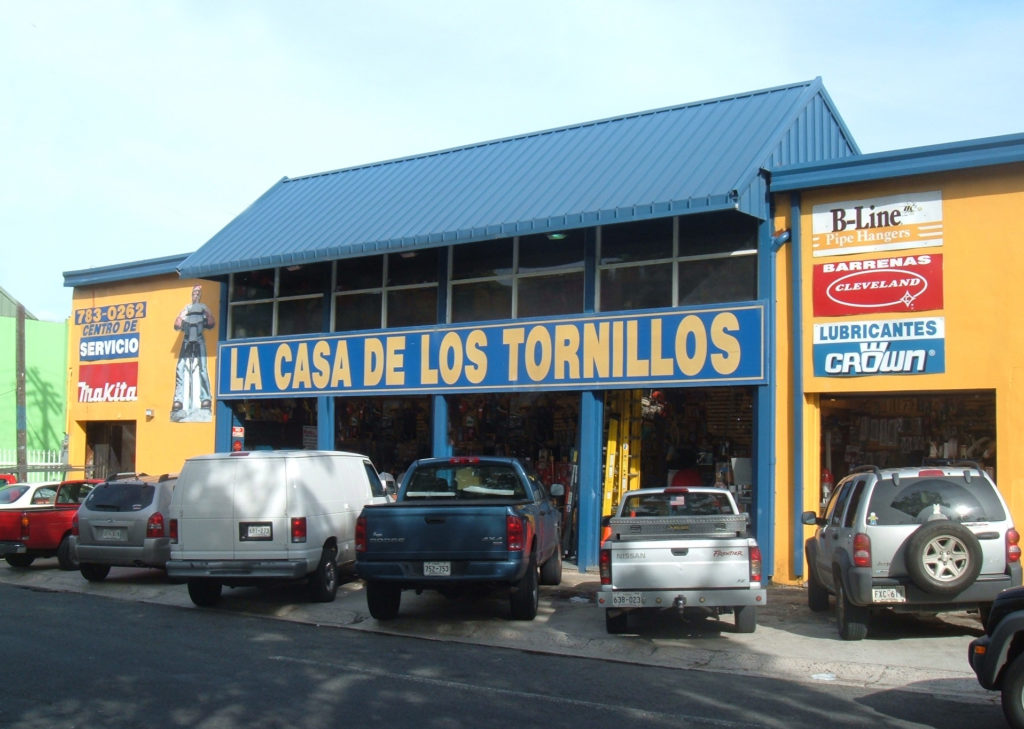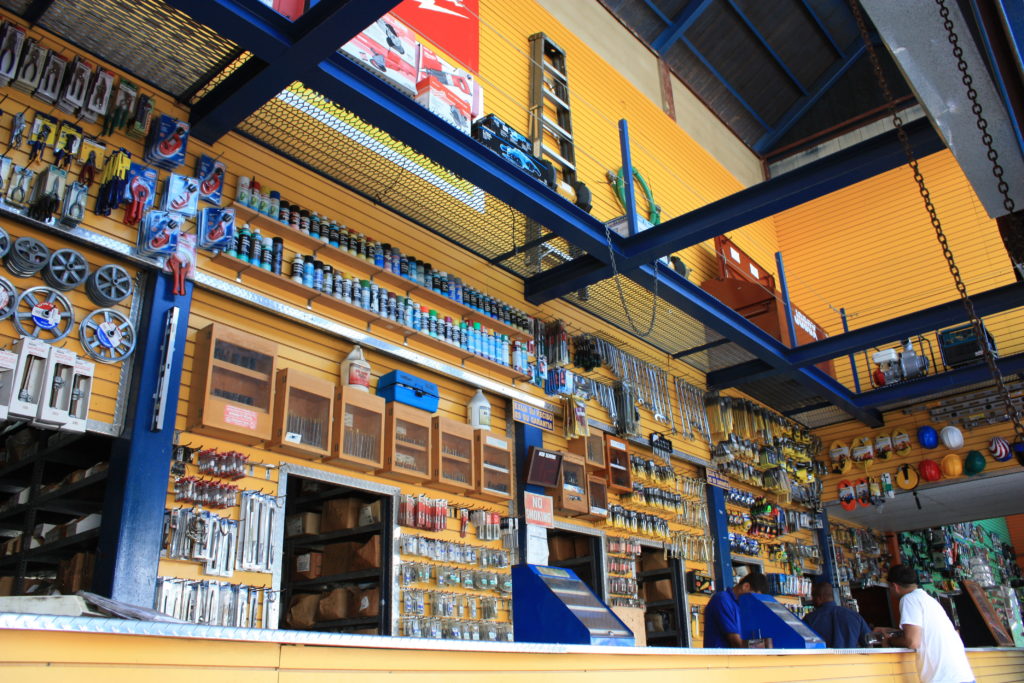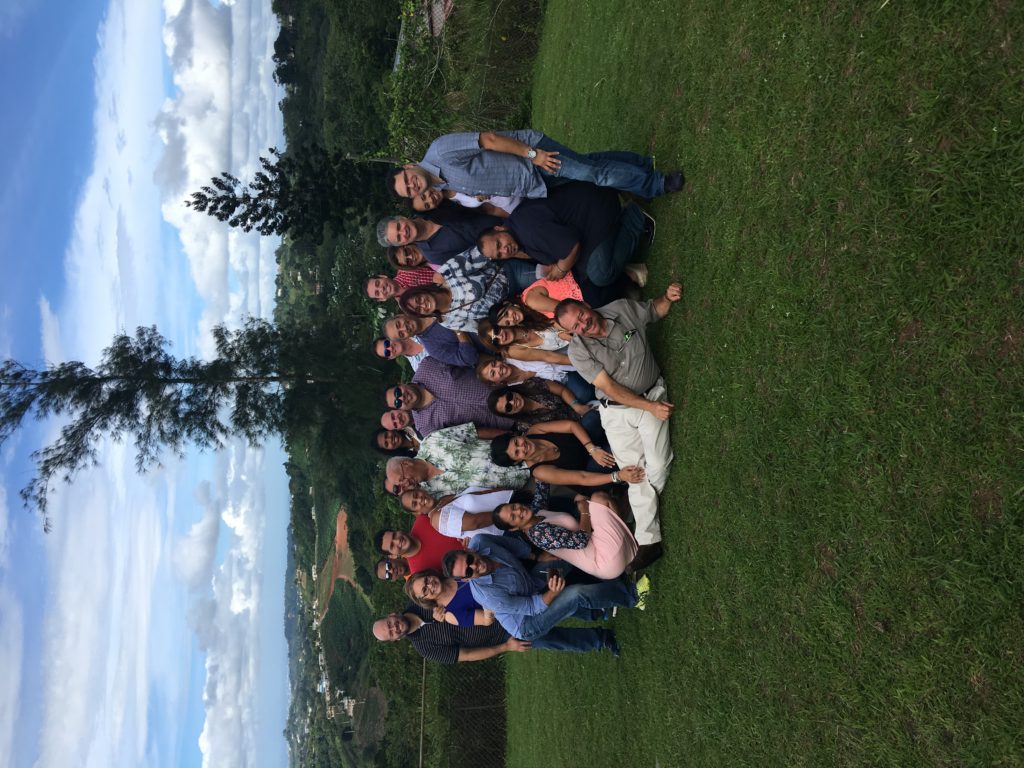We all have our ways of coping during difficult times. During the COVID-19 shutdown, I found myself turning off the news stations when I was in the car. After watching news at home, and reading about it online and I just found myself wanting to tune it out for those short drives I was taking from my house to my office or the grocery store. True confession, I found some temporary relief listening to the Jimmy Buffett station on Sirius radio. For the couple minutes I was in the car I thought of vacations and beaches and fruity drinks and all the imagery Jimmy Buffett songs produce. And that led to me thinking about my friend Javier Gomez and his fastener business located in Puerto Rico. Now Javier and his family have had to deal with the Coronavirus just like the rest of us. But over the last few years, Puerto Rico has dealt with hurricanes and earth quakes, just to make things extra interesting. So, I wanted to check in on Javier and ask few questions about what it is like doing business in the Caribbean located U.S. territory where I wish I was sitting with boat drink and ocean view right now!
TS: First of all, the name of your company is Fuerza Industrial, but you are known locally as “La Casa de los Tornillos”. Where did the name come from?
Javier: Most of our suppliers know us as “Fuerza Industrial” (which is our corporate name), but in Puerto Rico everyone knows us as “La Casa de los Tornillos”. The interesting thing is that name was placed unto us by our own customers. When we started selling fasteners, my father’s philosophy was to stock a little bit of everything, so we built a good rep around that. So, over the years customers started referring other customers saying stuff like “I bet you could go to that place that sells fasteners on Pinero Avenue… Hmmm, I think its name is something like the house of bolts (La Casa de los Tornillos)”. By 1980 we had to add that name to our building signage so people could find us. Eventually, the name became so popular that in the 90’s we had dropped our corporate name from all signage, logos and promotions in our stores. Now that I think about it, it was like we were engaged in social media before it became social media.
TS: Tell us about the history of your company.
Javier: Our company was started in 1971 in San Juan, Puerto Rico as a very small store in the same place our headquarters are now located. We have grown tremendously over almost 50 years and now we operate 11 locations around the island and our group has over 300 employees.
When we started, our focus was other industrial products like hydraulic hoses, paints and so on. As luck would have it, my dad (Midel Gomez Sr.) was offered a lot of 10 trucks of fasteners from a company that went bankrupt which he bought for $1000 (with an installment plan). After unloading those trucks (and realizing that he did not know much about fasteners) he decided to learn everything he could so we could organize and sell them properly. Over a short period of time, he realized that fasteners were a great business to be in and started concentrating most of his efforts there.
My older brother (Midel Gomez Jr.), who has been working with the company for over 35 years and oversaw most of our expansion into what we are today, took over as president when my dad “retired” in 2001. I use the term “retired” loosely because although he no longer actively participates in day to day operations, he is always monitoring and looking out for us. At 82 he continues to be as sharp as a tack.
TS: How did you got involved with the company?
Javier: I like to say I was born into the fastener industry. My dad encouraged me to “work” at the store since I was a little kid. I worked there all summers and pretty much every Saturday. By the time I was a teenager, I knew more about fasteners than many of our employees. Most of my fondest childhood memories have to do with working at the store and interacting with customers.
I knew I wanted to continue in the family business, so I went to college and got my degree in Chemical Engineering, then I went to grad school at the University of Delaware. After that, I came back to Puerto Rico and started working full time for the company since 2004. Since then, I have been working as the “Director of Operations” for the whole group, which is a made-up title that really means something different every day.
All kidding aside, I’m very happy to be a part of our family business. Looking at what we have together along with our employees accomplished over the years makes me feel immensely proud.
TS: Many people on the U.S. mainland probably have no idea of the kinds of challenges an industrial supply house like yours has just procuring materials. Do you pretty much have to have everything shipped in? Where does it generally come from?
Javier: There are many challenges to operating a business in Puerto Rico. However, I would say that our biggest challenge is having enough inventory in our stores. In fact, we attribute much of our success over the years to investing more in inventory than all our counterparts. I think many people in the US are used to ordering something via UPS/FEDEX and having it in their hands a couple of days later, without giving much thought to their shipping costs. However, the cost of doing that in Puerto Rico would be prohibitively expensive (particularly for heavy low-cost items like most fasteners).
We mostly buy from US distributors, but even with them it’s a challenge. Items ship out from different branches; all arrive at our cargo consolidation point in Jacksonville, Florida, where we need to wait until everything arrives and then ship it on a container to San Juan and then to our branches. With all the logistics and paperwork involved, it can take 2-3 weeks from the moment we place an order until it’s on our shelves.
To complicate matters even more, due to US cabotage laws, ocean cargo between two US ports must be moved using US-flagged vessels. This has the effect that shipping costs between the US mainland and Puerto Rico, Hawaii and Alaska are very expensive. In fact, the cost of shipping between Florida and Puerto Rico is almost twice what it is from Asia directly to Puerto Rico.
TS: Is there a lot of competition in Puerto Rico? How many other supply houses are there?
Javier: Although we are the leaders in fasteners in the island, we certainly have a healthy number of competitors. In addition to several local businesses that have overlapping product lines, both Fastenal and Grainger have stores here. We also have to compete with web and catalog orders from all major suppliers in the US, including Amazon and their Prime Shipping options (which I sometimes wonder how it can make money selling a $5 item with free shipping).
TS: What are some of your largest challenges?
Javier: Puerto Rico being a part of the United Stated, but not quite a state, creates a lot of confusion among many people. We sometimes need to create awareness on how things work down here. In particular, some vendors don’t understand that sometimes small changes can help us become better partners and help each other out. That’s why we love having people over to visit us and see our operation. When people visit us, they realize that our business model is somewhat different than our US counterparts and we eventually become better partners.
We also struggle with issues like any other business in the world. For example, one of the biggest growing pains of any business is that you need to reevaluate periodically the way you do things. Just because it has “always been done this way” doesn’t necessarily mean it’s okay to continue to do it that way. Conversely, just because you got a newer system in place it doesn’t mean it automatically will be better than what you had. In this day and age, where technology seems to be moving at the speed of light, keeping updated with the latest technologies and making strategic decisions so you don’t get left behind is a challenge.
TS: Over the last few years Puerto Rico has been hit by some terrible hurricanes that shut down large parts of the island. We saw news coverage where power was out for months. How were you affected and how did you cope with that?
Javier: Hurricanes Irma and Maria were certainly terrible for Puerto Rico and most of the Caribbean. The level of devastation in the aftermath was incredible. Our main office was without power for over 100 days and some of our stores did not get it back for 5 months. Even with our backup generators, there was limited internet and phone service for many weeks.
As a company, we were lucky; we only suffered minor damages in some of our stores. In fact, 2 days after the hurricane, half our stores were already open and the rest opened within 5 days. However, it was not easy. For the first two weeks there was no way to contact anybody outside the San Juan metropolitan area. We had to drive around the island and stop in each store to gather up information and give instructions. Everything got disrupted and it took a while to figure some things out.
The repair and reconstruction were a significant boom for our business, but also represented a challenge. Since FEMA and the government seized most cargo space coming to the island, for the first 4 to 6 weeks we couldn’t get any shipments in. There was also a myriad of other problems with logistics, fuel, employees, vendors and so on.
I’m particularly grateful for the support of the Fastener Industry during that period. Most of our vendors contacted us right away and asked what they could do to help. They helped us in so many ways, some even sent us care packages without us ever asking.
At the end, I think it was a humbling experience but made us grew as a company and brought our employees closer together.






Note from TS:
I have a regular column in Fastener Technology International (FTI) magazine, called 10 Minutes with the Travelling Salesman, which can be read online at www.fastenertech.com. Subscriptions to FTI, print and digital editions, are free-of-charge for fastener manufacturers, distributors and users as well as suppliers to the industry.”
